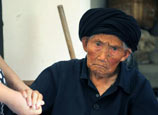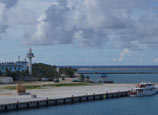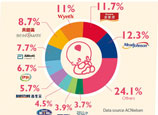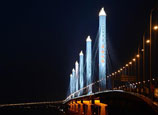
PARIS, July 18 (Xinhua) -- Europe's leading space company Astrium announced Thursday that its SPOT 6 satellite has been qualified by the Joint Research Centre (JRC), the European Commission's in-house science service, to take part in an agricultural survey program.
SPOT 6, the high-resolution Earth observation satellite designed, built and operated by Astrium, joined the other Astrium-operated satellites, SPOT 5, Pleiades 1A and Pleiades 1B, on the program on 1 July, as part of the 2013 MARS-CAP campaign, according to a statement released by the space technology company.
Initiated in 1993 as part of the Common Agricultural Policy (CAP), MARS-CAP is a program run by the European Commission which involves surveying agricultural land by satellite, to verify declarations relating to cultivated land areas and fallow land submitted by farmers.
The European subsidies granted to farmers are based on these declarations and their verification.
SPOT 6 brings new performance levels to the MARS-CAP program, including heightened resolutio, the blue spectral band, enhanced localization of images and unequalled agility, enabling extensive areas to be mapped in record time.
"With these newly-qualified satellites, the constellation operated by Astrium Services will now provide a significantly greater volume of images," said Evert Dudok, CEO of Astrium Services.
"The satellites' agility enabling flexibility and reactivity means they can provide an unprecedented level of performance even when programming schedules are updated several times a day as a result of weather forecasts," the Astrium noted.
















 116-year-old Chinese woman recognized as world's oldest
116-year-old Chinese woman recognized as world's oldest


![]()
